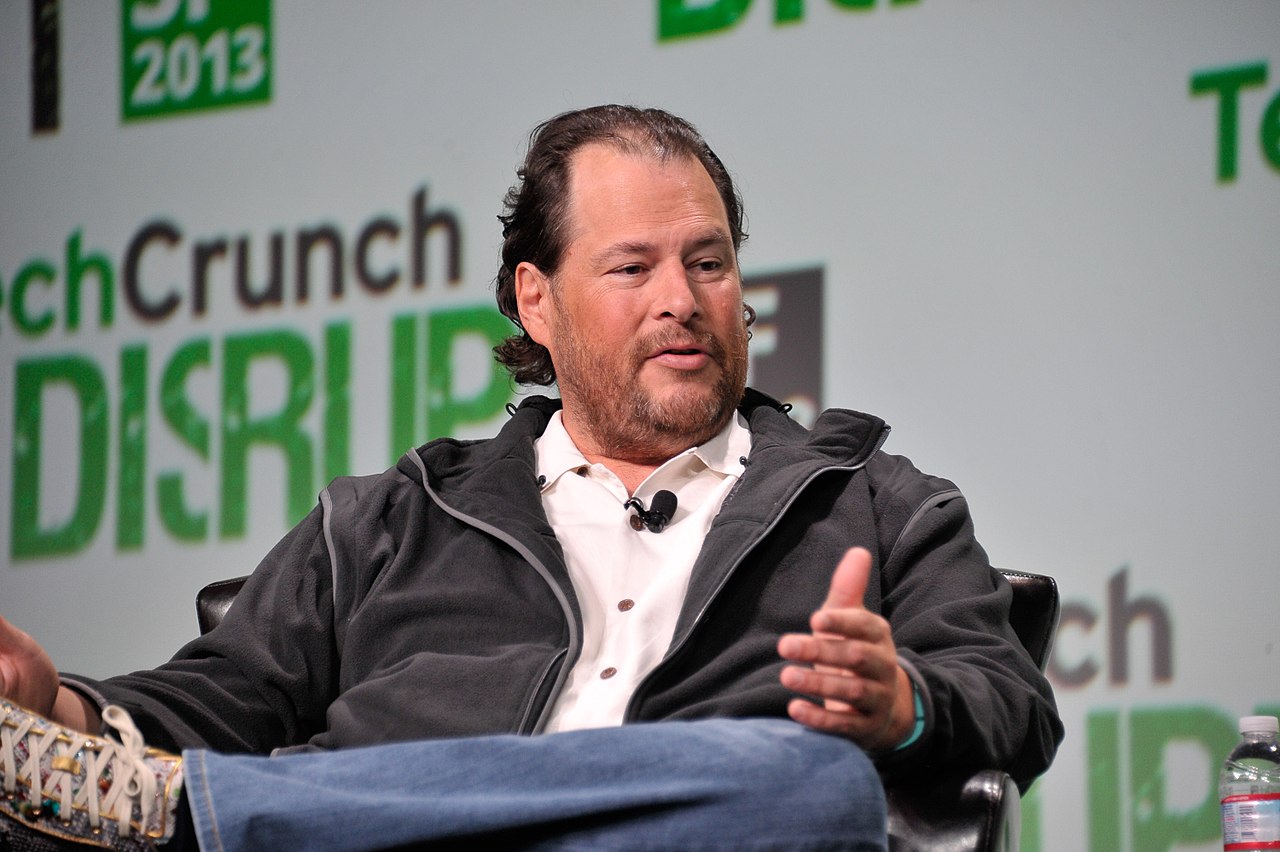Views expressed in opinion columns are the author’s own.
In a $190 million deal, Marc Benioff, the co-founder of Salesforce, and his wife bought Time Magazine. The deal drew comparisons to Jeff Bezos’ purchase of The Washington Post in 2013 and established a trend of acquisitions of big media companies by tech executives.
Since buying important publications, Benioff and Bezos have received praise from some for helping independent journalism, potentially rescuing an otherwise declining industry. But despite the obvious financial support, this trend only reinforces the structure that causes bias in the media.
Wealthy owners of media companies have received mixed reviews. Some, such as Bezos and Laurene Powell Jobs, who is majority owner of The Atlantic, have been commended for staying out of the editorial process despite conflicts of interest.
On the other hand, billionaire Sheldon Adelson has been criticized by writers and editors of the the Las Vegas Review-Journal, which he owns, for interfering in the editorial process. And Joe Ricketts, who founded TD Ameritrade, decided to shut down Gothamist and DNAinfo once writers there moved to unionize.
So intervening in journalistic decisions and shutting down newsrooms gets owners of media companies criticized, but making the publication more profitable or doing nothing but maintaining ownership gets them commended. Bezos receives praise for making the The Post more viable, while Benioff will not be “operationally involved” with Time.
After the recent turnover in the ownership of media, a cursory analysis of how each owner manages their publication is not enough. There needs to be a renewed discussion on how the structure of the media industry affects the content of the news.
In their groundbreaking 1988 work, Manufacturing Consent, Noam Chomsky and Edward Herman developed a “propaganda model” of the mass media. Their institutional analysis of the mainstream media showed that corporate ownership and the reliance on advertising, along with three other factors, serve to “filter” the news. Elites in business and the government advance their preferred narratives through the news media without coercion or overt influence.
Media companies are large corporations themselves and are often owned by even larger conglomerates. The Walt Disney Co. owns ABC, Comcast Corp. owns NBCUniversal and Time Warner owns CNN, to name a few. As of 2012, just six companies control 90 percent of the U.S. media industry. These corporations are tightly constrained by market forces, which demand they maximize profit and market share to stay in business.
As a result, Chomsky and Herman wrote, the mass media constantly have conflicts of interests. Businesses have an active interest in creating favorable conditions for their overseas operations and influencing policy and driving the political discourse. Even with the independence and good intentions of many journalists, these conflicts of interest create a general bias in the media favoring the interests of the powerful, whether that be accommodating U.S. foreign policy or narrowing the scope of political debate.
Additionally, Chomsky and Herman described how the reliance on advertising for revenue fuels the same bias. Advertisers, which are also large corporations, essentially give the media a license to do business. They tend to patronize media that are more closely aligned with their interests and that attract wealthier audiences.
Although some see them as the saviors of the press, the moguls who are buying media companies must increase reliance on advertising in order to make media more profitable – entangling them even more in a web of corporate interests.
It is not the case that billionaires who buy media companies are saving the free press; rather, they are further entrenching some of the factors that result in a biased mass media. Responding to a question about why he bought the magazine, Benioff said Time’s and his “values are aligned.” Unfortunately, it seems that’s true.
Zachary Jablow is a sophomore economics and government and politics major. He can be reached at zachjablow@gmail.com.



